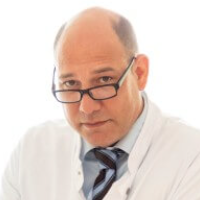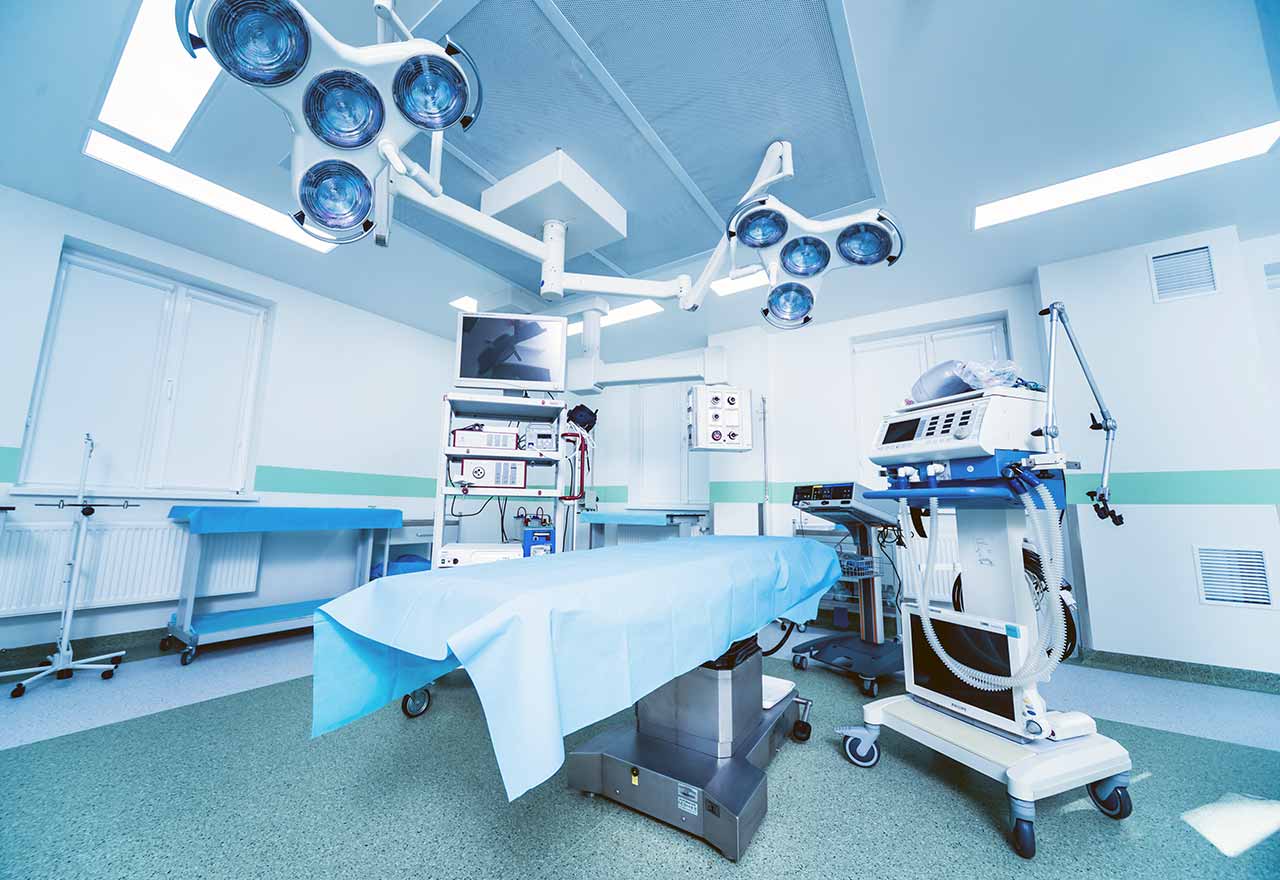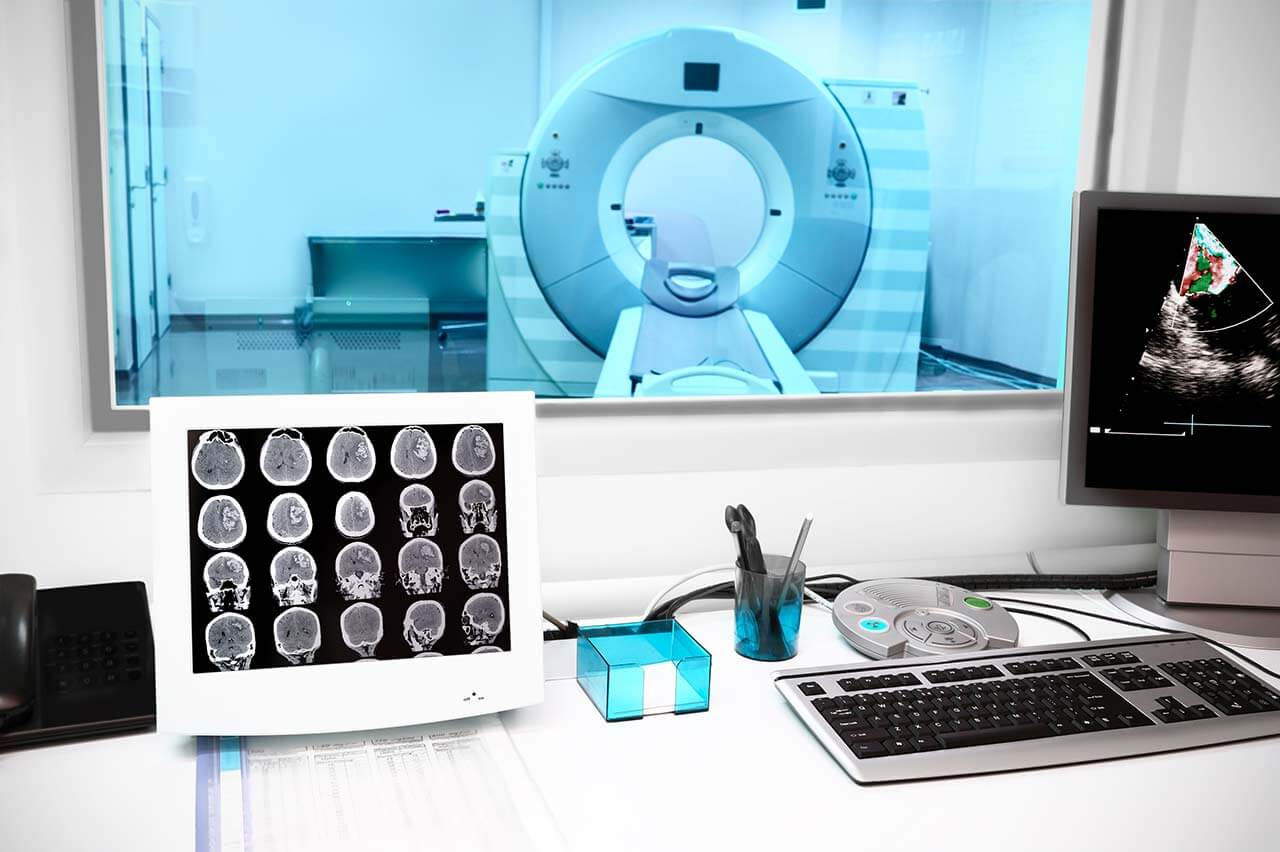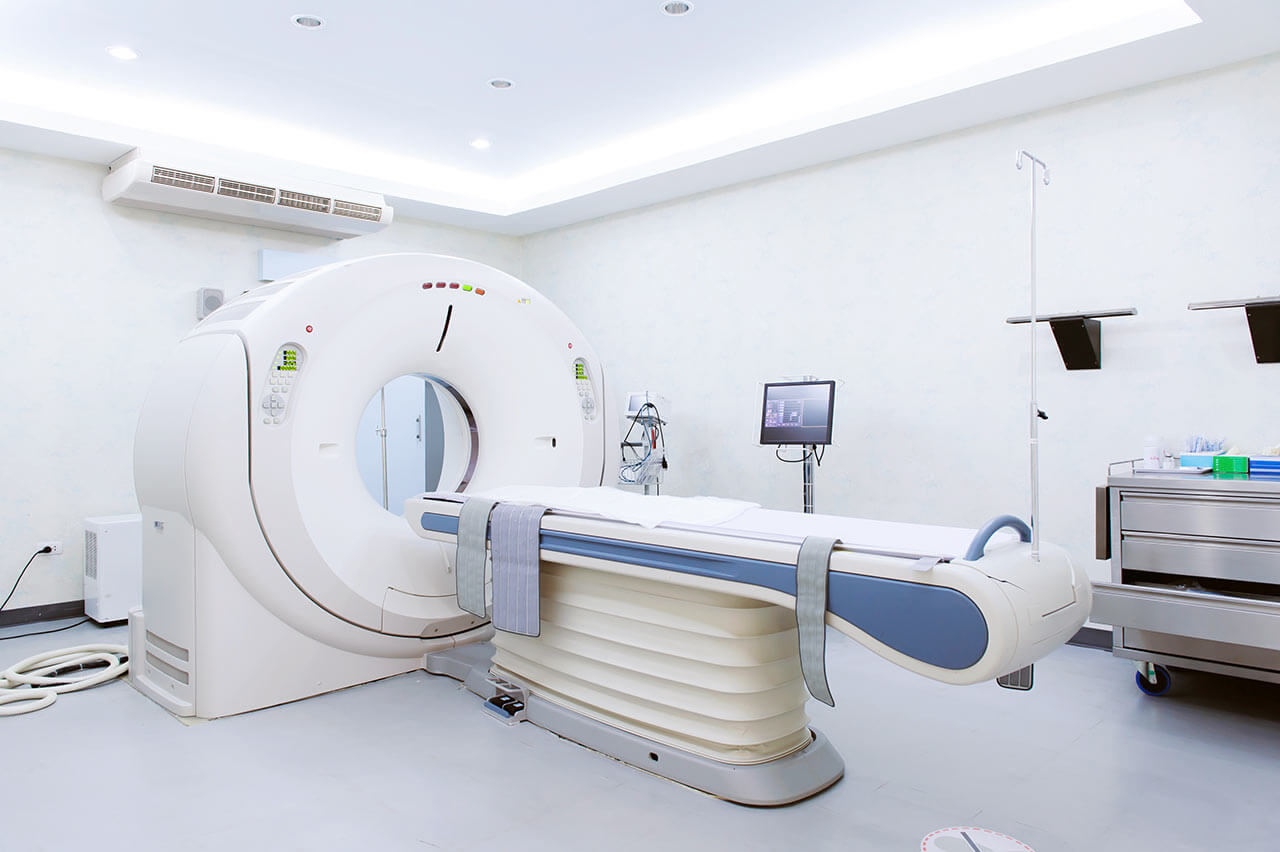
The program includes:
- Initial presentation in the clinic
- clinical history taking
- physical examination
- review of medical records
- laboratory tests:
- complete blood count
- general urine analysis
- biochemical analysis of blood
- indicators of inflammation
- indicators of blood coagulation
- X-ray / MRI examination of the knee
- preoperative care
- total knee replacement, cost of the implant is included
- symptomatic treatment
- control examinations
- the cost of essential medicines and materials
- orthopedic appliances
- physiotherapy
- nursing services
- full hospital accommodation
- explanation of future recommendations
The program includes orthopedic rehabilitation:
- Primary presentation in the clinic
- medical history taking, including family history
- complex of neurological and orthopedic examinations
- X-ray examination
- individual rehabilitation program, which includes:
- Wii Fit training in the use of the balance
- neuropsychological therapy
- functional therapy of the upper extremities (ArmeoSpring)
- kinesiotherapy (physiotherapy)
- biocontrol with feedback
- healing deep muscle massage
- acupuncture of spasticity and pain syndromes
- occupational therapy
- psycho-educational classes
- individual physiotherapy
- microcurrent treatment
- fangotherapy / cryotherapy
- antispasmodic drug therapy
- mobilization of limb joints
- hydrotherapy / massage therapy / reflexology
- training on special trainers
- etc.
- nurses care
- stay in the hospital with full board
- symptomatic and drug therapy
How program is carried out
Preliminary preparation for surgery: quitting smoking and drinking alcohol 2 weeks before surgery; cancelling non-steroidal anti-inflammatory drugs (diclofenac, ibuprofen); cancelling anticoagulants (warfarin); normalization of body mass, if possible.
Preoperative examination, including consultation with an anesthesiologist and necessary related specialists. X-ray examination and MRI of the knee joints are performed. The examination takes 1-2 days.
Surgical knee replacement. The operation is performed under general anesthesia and lasts for about 2 hours.
Postoperative care. During the first day after the intervention the patient stays in the intensive care unit, under round-the-clock medical supervision. After that, with a smooth course of the postoperative period, the patient is transferred to a regular ward and the drains are removed. The range of motion expands gradually, from light toes movements to walking. Walking with the use of walking aids is allowed in 3-5 days after the operation. Normal walking without the use of walking aids (crutches, cane) will become possible in 6-12 weeks.
Finally, the attending physician will evaluate the results of control examinations, schedule the date of discharge from the hospital and give you detailed recommendations for further follow-up and treatment.
Rehabilitation. The rehabilitation program begins after the transfer of the patient from the intensive care unit to a regular ward. It includes physical activity (from exercises in bed in the early days to exercises in the gym), physiotherapy, massage (including lymphatic drainage). After discharge from the hospital, the patient is transferred to a specialized rehabilitation clinic for 2 weeks, where he undergoes an advanced rehabilitation course.
Required documents
- Medical records
- X-ray examination, MRI/CT scan (if available)
Service
You may also book:
 BookingHealth Price from:
BookingHealth Price from:
About the department
The Department of Adult and Pediatric Orthopedics at the University Hospital Hamburg-Eppendorf provides a full range of diagnostic and treatment services for musculoskeletal disorders in patients of all ages. The medical facility offers patients the highest standards of healthcare service, experienced physicians, state-of-the-art equipment, the very latest treatment methods, and personalized care. The department's team of doctors specializes in joint replacement surgery (hip, knee, shoulder, elbow, and ankle arthroplasty), including revision surgery to replace previously implanted prostheses, treatment of bone and joint infections, bone and joint necrosis, joint-preserving surgery for dysplasia and hip dislocation, treatment of rheumatic joint lesions, foot and ankle pathologies, spinal diseases, and bone tumors. The medical facility also treats young patients with orthopedic diseases with a special emphasis on the treatment of hip dysplasia, Perthes disease, clubfoot, flatfoot, and scoliosis. The department's specialists also have successful experience in the treatment of rare orthopedic diseases, including hemophilic arthropathy and osteogenesis imperfecta. Medical services are provided in accordance with the recommendations of the German Society for Orthopedics and Trauma Surgery (DGOU) and the German Society for Orthopedics and Orthopedic Surgery (DGOOC). The Head Physician is Prof. Dr. med. Frank Timo Beil.
Large joint replacement surgery is one of the primary clinical responsibilities of the department's medical team. Specialists perform partial and total hip, knee, shoulder, elbow, and ankle arthroplasty. This surgical procedure is indicated for patients with arthrosis, severe rheumatic joint lesions, joint degeneration due to hip dysplasia, O-shaped and X-shaped lower limb deformities, avascular necrosis of the femoral head, osteogenesis imperfecta, hemophilic arthropathy, and other pathologies. The therapeutic process begins with an individual consultation with an orthopedist, after which the patient is prescribed a series of diagnostic measures to assess the indications for joint replacement surgery with a prosthesis. This is followed by the stage of surgical planning, including the choice of the type of joint replacement surgery (partial or total), the optimal surgical approach, the type of endoprosthesis – it can also be custom-made taking into account the individual anatomical features of the patient if necessary. Joint replacement surgery is performed using minimally invasive approaches and innovative computer-assisted and navigation systems that allow for the most accurate positioning of the prosthesis to ensure its optimal function. A major advantage of minimally invasive arthroplasty is the rapid restoration of mobility in the postoperative period. In addition, surgical risks are significantly reduced, and the patient experiences virtually no pain after surgery. Experienced physiotherapists and rehabilitation specialists take care of the patient after surgery.
Specialists at the medical facility also regularly perform arthroscopic procedures on the hip, knee, shoulder, elbow, and ankle joints. Arthroscopy is a minimally traumatic surgery that requires only 2-3 incisions 5-6 mm long for surgical approach. During the procedure, a special instrument (arthroscope) with a built-in miniature camera is used to transmit the image of the inside of the affected joint to a large monitor in real time with multiple zooms. Arthroscopy is performed under local anesthesia, and the risks for the patient are practically zero. The department's team of orthopedic surgeons most often uses arthroscopy to treat the early stages of arthrosis, joint instability, impingement syndrome, knee ligament injuries, meniscus injuries, rotator cuff injuries, and cartilage lesions.
The department has a reputation as one of the leading healthcare facilities in Germany for the treatment of bone and soft tissue sarcomas. It has a specialized Sarcoma Center that is integrated into the University Cancer Center Hamburg (UCCH). The diagnostic phase includes a review of the patient's medical history, a clinical examination, laboratory tests, imaging studies, and a biopsy. A treatment regimen is developed in cooperation with oncologists, radiation therapists, and radiologists. The decisive factor in choosing the treatment tactics is the type of tumor: for example, the department's specialists successfully use radiofrequency ablation to remove an osteoid osteoma (a benign tumor), which is a minimally invasive procedure performed under short-acting anesthesia; if the patient is diagnosed with osteosarcoma, Ewing's sarcoma, or chondrosarcoma (malignant neoplasms), an open tumor resection surgery is most often performed. The department's team of physicians also performs reconstructive bone surgery following the removal of large tumors.
The main clinical focuses of the department are the following:
- Conservative and surgical treatment of hip, knee, shoulder, elbow, and ankle arthrosis
- Conservative and surgical treatment of bone and joint infectious lesions
- Conservative and surgical treatment of bone and joint necrosis
- Conservative and surgical treatment of rheumatic lesions of the musculoskeletal system
- Conservative and surgical treatment of spinal diseases
- Conservative and surgical treatment of rare orthopedic diseases, including hemophilic arthropathy and osteogenesis imperfecta
- Conservative and surgical treatment of pediatric orthopedic diseases: hip dysplasia, Perthes disease, clubfoot, flatfoot, and scoliosis
- Conservative and surgical treatment of other orthopedic diseases
The range of therapeutic options offered by the department includes the following:
- Conservative treatment
- Drug therapy with pills
- Treatment with orthoses and other orthopedic aids
- Intra-articular injections
- Therapeutic exercises
- Physiotherapy
- Surgical treatment
- Arthroscopic interventions
- Minimally invasive interventions
- Microsurgical interventions
- Reconstructive interventions
- Lower and upper limb amputation
- Other treatment methods
Curriculum vitae
Higher Education and Postgraduate Training
- 1996 - 2002 Medical studies, University of Hamburg.
- 1999 - 2002 Scholarship from the German Research Foundation (DFG).
- 2000 Thesis defense, summa cum laude, University of Hamburg.
- 2002 - 2009 Internship and residency, University Hospital Hamburg-Eppendorf.
- 2007 - 2009 Postdoctoral Fellowship, Research Group of the German Research Foundation (DFG). Project: "Mechanisms of fracture healing and bone regeneration in osteoporosis".
- 2007 - 2010 Research Fellowship, Neuroendocrinology Research Group, Faculty of Medicine, Monash University, Melbourne, Australia.
- 2008 - 2010 Distance education, Master of Business Administration in Healthcare Management, Faculty of Economics and Social Sciences, University of Hamburg.
- 2011 Habilitation and Venia legendi in Orthopedics and Trauma Surgery, University of Hamburg.
- 2010 - 2011 Physician, Department of Orthopedics, Bad Bramstedt Clinic.
- 2011 - 2012 Senior Physician, Department of Orthopedics, Bad Bramstedt Clinic.
- 2012 - 2016 Deputy Head Physician, Department of Orthopedics, Bad Bramstedt Clinic.
- 2016 - 2019 Deputy Head Physician, Section of Orthopedics, Department of Trauma Surgery, Orthopedics and Plastic Surgery, University Hospital Goettingen.
- 2017 Professorship, University Hospital Goettingen.
- 2019 Invitation to W3 Professorship, University of Hamburg.
- Since 2019 Head Physician, Department of Adult and Pediatric Orthopedics, University Hospital Hamburg-Eppendorf; Head Physician, Department of Orthopedics, Bad Bramstedt Clinic.
- Since 07.2021 Medical Director, Clinic Bad Bramstedt.
Board Certification
- Board certification in Orthopedics and Trauma Surgery.
- Board certification in Special Orthopedic Surgery.
- Board certification in Orthopedic Rheumatology.
- Board certification in Physical Therapy and Balneology.
- Board certification in Emergency Medical Care.
- Board certification in Foot Surgery.
Clinical Interests
- Primary hip and knee replacement surgery.
- Revision hip and knee replacement surgery.
- Septic surgery.
- Forefoot and hindfoot surgery.
- Orthopedic rheumatology.
Prizes, Awards, and Honors
- 2002 Youth Forum Award 2002, German Trauma Society (DGU).
- 2002 Young Investigator Award, American Society for Bone and Mineral Research (ASBMR).
- 2003 Young Investigator Award, German Society for Biomechanics (DGfB).
- 2009 Poster Award, Association of Osteologists (DVO).
- 2018 Poster Award, German Society for Orthopedics and Trauma Surgery (DGOU).
Memberships in Professional Societies
- German Society for Orthopedics and Orthopedic Surgery (DGOOC).
- German Trauma Society (DGU).
- German Society for Orthopedics and Trauma Surgery (DGOU).
- German Society for Endoprosthetics (AE).
- AOTrauma, Osteosynthesis Working Group.
- German Society for Foot and Ankle Surgery (GFFC).
Photo of the doctor: (c) Universitätsklinikum Hamburg-Eppendorf (UKE)
About hospital
According to the Focus magazine, the University Hospital Hamburg-Eppendorf is one of the top ten hospitals in Germany!
Since its foundation in 1889, the hospital has taken a leading position in the European medical arena, which it still holds today. A highly competent medical team of more than 15,300 employees takes care of the health of patients. Approximately 2,900 of them are physicians and researchers, and more than 3,400 work as nurses and therapists. The hospital has 1,738 beds for inpatient treatment, and many diagnostic and therapeutic services are provided on an outpatient basis. A solid foundation for successful clinical practice in the medical complex is formed by a combination of research achievements with state-of-the-art equipment and the highest professionalism of doctors. In addition, the hospital has a modern and extremely comfortable infrastructure. The most important value for every employee of the University Hospital Hamburg-Eppendorf is the health and well-being of every patient.
The medical facility was the first university hospital in Europe to implement an electronic system for storing patient medical reports. As a result, all diagnostic and treatment protocols are stored electronically. In 2011, the hospital was certified as the first fully digital hospital in Europe.
The hospital represents all areas of modern medicine. The doctors of the healthcare facility have a wealth of theoretical knowledge and vast clinical experience, which allows them to easily cope with the treatment of both common and extremely rare, complex clinical cases. About 550,000 patients are treated here each year, over 450,000 of whom receive outpatient medical care.
An important part of the work of the University Hospital Hamburg-Eppendorf is research activities aimed at developing innovative diagnostic and treatment methods. The main areas of research of the hospital include neurobiology, oncology, cardiovascular research, and research on infectious and inflammatory diseases. Special attention is also given to research in molecular imaging and skeletal biology.
The hospital is distinguished by its first-class level of medical care, which is confirmed by numerous quality certificates of European and international standards: DIN EN IS0 9001 certificate, certificates of the German Cancer Society (DKG) in the treatment of breast cancer, colon cancer, gynecological cancer, prostate cancer, and other oncological diseases, certificate of the German Cardiac Society (DGK) in the treatment of acute coronary syndrome, certificate of the German Spine Society (DWG), and others.
Photo: (с) depositphotos
Accommodation in hospital
Patients rooms
The patients of the University Hospital Hamburg-Eppendorf stay in comfortable single and double bright rooms with a modern design. Each patient room has an ensuite bathroom with a shower and a toilet. The standard patient room furnishings include an automatically adjustable bed with an orthopedic mattress, a bedside table, a wardrobe, a table and chairs for receiving visitors, a telephone, a radio, and a TV. Wi-Fi access is available in patient rooms and throughout the hospital.
If desired, patients can stay in single enhanced-comfort rooms. These rooms are more spacious and are equipped with upholstered furniture, a safe, and a mini-fridge.
Meals and Menus
The hospital offers three meals a day: breakfast, lunch, and dinner. Breakfast and dinner are served in the form of buffets, and for lunch you can choose from several set menus – in total, more than 20 dishes are served for lunch, including vegetarian ones.
If, for some reason, you cannot eat all of the foods, you will be offered an individual menu. Please inform the medical staff about your dietary preferences prior to the treatment.
Further details
Standard rooms include:
![]() Toilet
Toilet
![]() Shower
Shower
![]() Wi-Fi
Wi-Fi
![]() TV
TV
Religion
Religious services are available upon request.
Accompanying person
During the inpatient program, an accompanying person may stay with you in a patient room or hotel of your choice.
Hospital accommodation
During the outpatient program, you may stay in a hotel at the hospital.
Hotel
During the outpatient program, you may stay in a hotel of your choice. Managers will help you choose the most suitable options.
The hospital offers a full range of laboratory tests (general, hormonal, tests for infections, antibodies, tumor markers, etc.), genetic tests, various modifications of ultrasound scans, CT scans, MRI and PET / CT, angiography, myelography, biopsy and other examinations. Treatment with medications, endoscopic and robotic operations, stereotaxic interventions is carried out here, modern types of radiation therapy are also used. The hospital offers patients all the necessary therapeutic techniques.
- Coiling and clipping of aneurysms of different localizations
- Transjugular intrahepatic portosystemic shunting in patients with portal hypertension
- Minimally invasive surgeries (da Vinci)
- Removal and reconstruction of mammary glands
- Hyperthermic intraperitoneal chemotherapy (HIPEC)
These are arteriovenous malformations and angiomas, vascular aneurysms, pathologies of the mammary glands, pelvic organ prolapse, urinary incontinence, malignant tumors of various localizations (area of special attention is treatment of intestinal cancer), pathologies of liver and pancreas, cataracts and rare ophthalmic pathologies (aphakia, aniridia ), infertility and other diseases.
- Interventional neuroradiology
- Mammology
- Oncology
- Gastroenterology
- Surgery
Over 2,900 highly qualified physicians and researchers work at the hospital.





